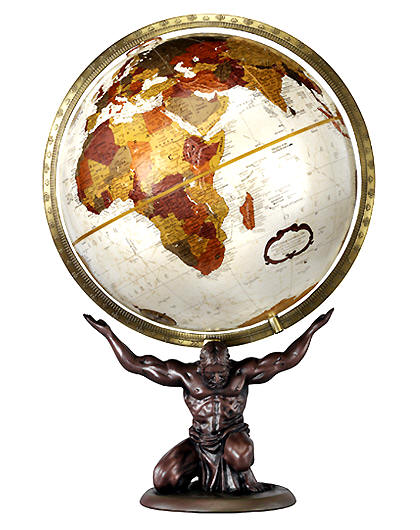The Chinese Century?
China farming boom has left ecosystems in danger of total collapse
More intensive agriculture has reduced poverty, but China’s environment can’t handle the pressure.

China’s push for more intense farming has kept its city dwellers well-fed and helped lift millions of rural workers out of poverty. But it has come at a cost. Ecosystems in what should be one of the country’s most fertile region have already been badly damaged – some beyond repair – and the consequences will be felt across the world.
This is part of a long-running trade-off between rising levels of food production and a deteriorating environment, revealed in recent research I conducted with colleagues from China and the UK. Yields of crops and fish have risen over the past 60 years at several locations we studied in Anhui, Jiangsu and Shanghai Provinces in eastern China. But these are parallelled by long-term trends in poorer air and water quality, and reduced soil stability.
You may ask if this a bad thing. After all, increasing agricultural productivity has been one of the factors responsible for lifting millions of rural Chinese out of poverty. Does it really matter that the natural environment has taken a bit of a hit?
Well yes. For agriculture and aquaculture to be sustainable from one generation to the next, the natural processes that stabilise soils, purify water or store carbon have to be maintained in stable states. These natural processes represent benefits for society, known as ecosystem services.

Throughout the latter half of the last century, these services were being lost relatively slowly through the cumulative, everyday actions of individual farmers. But the problems accelerated in the 1980s when farmers began to use more intensive methods, especially artificial fertilisers – and again after 2004 when subsidies were introduced.
Worryingly, in some localities, the slow deterioration has turned into a rapid downward spiral. Some aquatic ecosystems have dropped over tipping points into new, undesirable states where clear lakes suddenly become dominated by green algae with losses of high-value fish. These new states are not just detrimental to the continued high-level production of crops and fish but are very difficult and expensive to restore.

These natural processes are degraded and destabilised to the point that they cannot be depended upon to support intensive agriculture in the near future. The whole region is losing its ability to withstand the impact of extreme events, from typhoons to global commodity prices.
What can be done?
National policy must prioritise sustainable agriculture. This will mean big changes on the farm: fertiliser and pesticides must be applied in the correct quantities at the right time of the year, cattle slurry and human sewage must be disposed of properly, chemicals getting into streams and rivers must be reduced, and fish feed has to be controlled.
Unfortunately, this is easier said than done. Farmers are still generally poor, badly educated and ageing. Good agricultural advice is lacking and big cities still tempt the younger farmers away from their fields. All these factors mean that rapid action is unlikely.

The recent introduction of the Land Circulation reform policy, allows farmers to rent their land to larger combines. The policy is designed to overcome the inefficiencies of small farm holdings but it may not be taken up widely in the more marginal landscapes where potential profits are low.
All the evidence points to a need for a significantly improved system of information and technology transfer to individual smallholders, probably involving a more efficient coordination between agencies.
Global problem
But there’s a larger-scale context to this problem that may affect us all. China’s grain production has risen fivefold since the 1950s, outstripping the pace of population growth. Despite this, the nation is no longer self-sufficient. The shift towards more meat production has placed a demand for soybean and cereal animal feed that can no longer be met internally. In 2012, China imported more than 60% of all the world’s soybeans that were available for export, and cereal imports are also on the up.
Reliance on imports to fill a shortfall in home produce is nothing new. But in China’s case, the additional risk that agriculture is increasingly unsustainable may amplify the demand. The potential scale of demand for imports is bound to have repercussions for global food production and food prices. Unless reforms are introduced quickly, the rest of the world may well find that they are sharing China’s trade-off with nature – through the weekly shopping bill.
THIS ARTICLE ORIGINALLY APPEARED IN ‘THE CONVERSATION’ ON FEBRUARY 26 2015. The Global Farmer thanks ‘The Conversation’ for making this article available.
Disclosure Statement
John Dearing receives funding from NERC-ESRC-DfID Ecosystem Services for Poverty Alleviation Programme. He is a member of the The Green Party.
 Provides funding as a Member of The Conversation UK.
Provides funding as a Member of The Conversation UK.
southampton.ac.uk/










